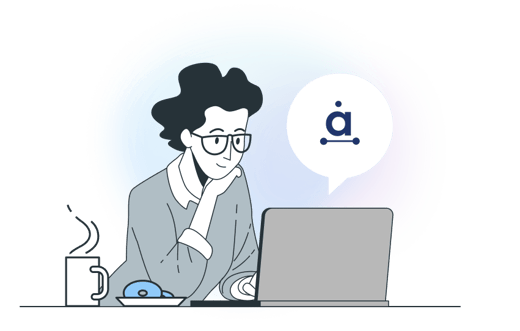Generative AI is changing everything
Artificial intelligence (AI) has revolutionized market research. Generative AI is just getting started and it has already managed to knock the metaverse and Web3 off the front pages. For good reason. It's not that they aren’t important - the metaverse is as real to Generation Alpha (birth year 2010+) as the real world is to us but Generative AI is practically and applicably useful to almost everything we do. That’s a bold claim, I know. Here’s why I believe that is justified.
Generative AI is not new technology, but there are core reasons it’s exploding right now. It’s really the most powerful and most successful analytics tool in the marketplace. ChatGPT, the first to really gain attention, reached 100m users vastly more quickly than other digital mass products like Instagram, Spotify, Facebook, Netflix, and Twitter … with the exception of Pokemon Go!
Think about an intelligence that has read and understood a vast amount of social media commentary and posts. Then imagine it has also read Wikipedia and news sites. Now add technical manuals, scientific papers, blogs, and Amazon product listings. Then books, fiction, nonfiction and more. ChatGPT has basically, roughly, read and understood the sum total of human knowledge. And can draw on it to answer any question you have.
Democratised.
Anyone can create an account on ChatGPT and start exploring. This is not just for big corporate businesses that can afford to pay or have a team of IT specialists. It makes knowledge accessible to people on the street. Basically, we can query a massive database, and there is no need to learn a special coding language to do so. You can converse in natural language. Like you would with any other person. Except it is infinitely more powerful.
When ChatGPT launched at the end of last year, it was obvious it could make the role of strategic research and insight easier and quicker. At Audience Strategies, our driver is to help brands understand their audiences, and if they really do, then they can make better strategic decisions (which, in turn, helps the tactical and operational ones!). And so this is the lens through which we approached ChatGPT in early December 2022. We were totally blown away by how practically useful it was to help us to do all the things that we've been doing with these brands for 20 years.
We wrote a series of books on the topic to help others unlock the value of ChatGPT as, while Linkedin Influencers keep saying it’s magic, we wanted to focus on sharing practical use-cases that can be utilised by executives today to enhance their knowledge and improve the way they do business.
And it’s not just ChatGPT, Google has now released Bard - their version. Anthropic’s Claude allows for larger volumes of text, but the lessons and use cases remain largely the same:
Generative AI like ChatGPT can help retail in very real and practical ways:
1. Knowledge: understanding consumers and markets, their underlying human needs and how that influences who and how you target your brand. Also, accessing your own knowledge more easily.
Example: Generating a comprehensive list of your audience’s category-related needs during earlier stages of projects. Bringing richer discussions forward and allowing more time to iterate and get to a better answer, quicker.
Example: Uploading and analysing customer feedback for a large beauty brand, extracting themes and producing a helpful report on significant opportunities in a shorter time frame.
2. Asset Generation/ Creative: Copywriting, marketing, social media posts. Anything that requires an early draft. Why wouldn’t you get ChatGPT to get you started and make it faster and more efficient?
Example: Upload a list of products and write product descriptions to add to the website with a social media post to promote alongside it that complements the message
3. Support: Some legal professionals believe it will take over areas of paralegal work with contract drafting, reviewing changes and legal letters easy to create in ChatGPT. Need to understand a thorny HR issue? ChatGPT can help!
Example: Review and highlight any changes from a previous version of a contract (Claude managed to find one sentence that was changed in the novel The Great Gatsby in 22 seconds)
4. Automated Processes: As ChatGPT becomes commoditised, new solutions to maximising the value of the knowledge base are being developed, e.g. customer service chatbots like the Zalando Virtual Assistant powered by ChatGPT and new features in enterprise solutions such as Tableau and Salesforce. The newly released ChatGPT Code Interpreter is particularly exciting. This means that large data sets – previously only accessible via complex coding languages such as Python can be talked to using natural language. This removes HUGE barriers to understanding. You just upload your database (like your CSV file), and you can ask it to clean, manipulate and interpret the data. All you need to know now is your business objectives and the strategic questions you want to ask.
ChatGPT took AP exams in the US (A-Levels for us Brits) and aced most of them. Like, 100th percentile aced. There is countless evidence it will revolutionise certain roles. I worry for some teams. Particularly those that don’t embrace it. I don’t worry for smart humans who harness these tools to get faster and better.
It will mean the tasks that previously took a lot of time and effort will be quicker and easier, leaving the humans time and space to create the inspiring and exciting bit. Steve Jobs said that technology is like a bike for the mind. And we think ChatGPT is like an electric bike for our minds. It gets you further, quicker, more easily than before, but you still have to pedal, set the direction, navigate and park it (that is, decide when you’ve reached an intellectual destination that does the job you need it to).
You need to use it well and understand the limitations. Writing prompts is a skill, and you need to understand how to ask properly to get actionable answers. Crap in, crap out – context is key. Tell it who you are, and what you’re trying to achieve. Help it learn. For example, it doesn’t like to give opinions, but it will if you tell it to act like someone who would have an opinion. It’s fun to play with. I had it write a preface for the book in the style of Harry Selfridge, and it was pretty spot on.
But for now, what used to take years is instant. A comprehensive category needs-based segmentation of the market used to cost a hundred thousand pounds and take at least six weeks – now you can explore underlying human needs and segment your targets using ChatGPT for free and almost instantly. This creates hypotheses that can superpower your audience segmentation and makes one much faster to develop. I’m not saying it’s as good as a large qualitative study, and would always advocate someone with proper experience and skills leading the work, but if you can’t afford it or don’t have time, then this likely gets you 60-70% of the way there as a non-expert (and usually 70-80% of the way there when a real expert does it).
This paper by a team at MIT says it all. Titled ‘Experimental evidence on the productivity effects of general artificial intelligence’. They took 444 college-educated people and split them into two groups, and gave them realistic professional writing tasks. So if you're a marketer, they asked you to write a press release for a new product; if you're a grant writer, then a grant application cover letter - typical professional writing tasks. And they gave one group ChatGPT and one group, no ChatGPT. What do you think happened?
The ChatGPT Group were quicker getting to the answer. The answers were better independently graded, they were better work from the ChatGPT group. But the ChatGPT group spent their time differently as well which is an important lesson. They spent a lot less time brainstorming. And first drafting their writing. And a lot more time on the fun, creative side of editing and the strategy side of writing, which is the bit we often don't get around to because we spend a lot of time brainstorming and first drafting, right?
In summary, ChatGPT significantly speeds up and enhances market research. By leveraging its ability to analyse large data volumes, it saves time and effort in exploring new product categories, identifying customer needs, and hypothesising about consumer behaviour. The tool also helps gain a deeper understanding of customer feedback and social media conversations, which can be loaded on a project-by-project basis.
Market researchers should use ChatGPT's insights and hypotheses as a starting point for further exploration and analysis, not as the final answer. Human expertise and creativity play a vital role in overseeing and shaping the outcomes. ChatGPT should be employed in conjunction with other tools and methods to achieve a holistic understanding of the retail audience and make well-informed decisions.
If you haven’t already - have a go. Most people have heard of ChatGPT, maybe even logged in, but far fewer are using it regularly. There is a maturity curve to using any tool as an expert, and learning always starts with play - moves to information and understanding before supportive tasks and advanced creativity and finally - strategic insights and decisions.
Good Luck!
Prompt for Fashion Retail is a must-read for anyone in fashion or retail that wants to understand the use cases for ChatGPT or other Generative AI in the industry and a good overview for anyone who hasn’t discovered it yet.





